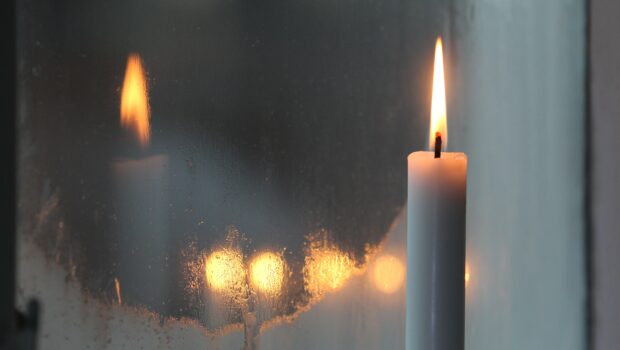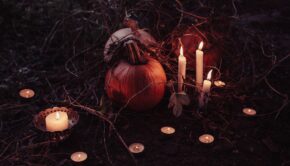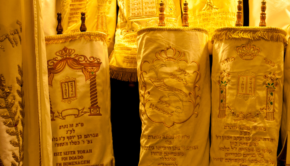Hanukkah is Not a Minor Holiday
I always hear people say that Hanukkah is really a minor holiday. It’s just inflated because it’s close to Christmas, and so forth.
I understand, but it pains me because Hanukkah is as deep and meaningful as any other Jewish holiday. Maybe that fact that it’s close to Christmas isn’t just a happy coincidence or a commercial gimmick. A lot of cultures have holidays of light at the darkest time of the year – that makes it universal, in harmony with the rhythms of the earth and our psychological and spiritual needs. That’s natural, not minor.
One of the reasons that people might say that Hanukkah is a “minor” holiday is that it is not biblical. There is no story of Hanukkah in the Torah or Prophets or Writings of the Hebrew Bible. Hanukkah, along with Purim, is a rabbinic holiday, meaning that it was created not by any decree from God or even a biblical prophet, but by regular people who decided that we should have a holiday to celebrate the events that happened in those days at this time of the year.
Ironically, that can make it seem “minor” on the one hand, but it is also the greatness of Hanukkah – it is one of the best examples of us growing into our roles as partners with God. People innovated a new ritual and a new holiday without any prophet giving them permission. You could say that Hanukkah is a celebration of emergence: the way that life evolves, adapts, creating new forms and ideas—sometimes in a way that feels miraculous.
Newness has a way of emerging in the world—be it one-celled microbes that made the momentous leap from inert matter into the miracle of life 3.7 billion years ago, or when I knead my dough, adding just the right amount of whole wheat flour, honey, oil, water, eggs, salt and yeast to create something that is more that the sum of those ingredients—a delicious challah (and mine really are delicious). It goes from the emergence of language in early humans, making a miraculous leap from the simpler (though still amazing) communication of our primate forebears, all the way to the amazing feeling that any artist has when you write a story or compose a song, bringing together words, ideas, feelings, bits of tradition and a dose of daring innovation to create something that feels like it came through you, the fruit of your hard work, but also a gift from some mysterious Source.
Hanukkah, as a holiday that emerged from the intuition of the people, as a holiday that celebrates finding answers out of confusion, and light out of darkness, is perfectly symbolized by the lights of a Hanukkah candle. The spark, the flickering flame that is rooted in the material of the wax or the oil and the wick, and transforms that matter into light, energy, heat and movement that seems to reach up to heaven, creating a bridge between heaven and earth, between material and spiritual.
The fact is, Hanukkah isn’t just celebrating events which happened more than two thousand years ago: the small group of Maccabee fighters defeating the powerful Greek empire, or the oil that lasted not one but eight days. It’s celebrating the miracle of newness, innovation, creation happening all the time, emerging from the fabric of a world in which the whole is greater than the sum of its parts. Hanukkah can inspire us to be aware of this potential every day, to tap into the opportunities to connect, to put new pieces together, to partner with God in the work of creation, and find create light in a time of darkness.
During this time of light you can support Organic Torah in creating a more connected and thriving world through the integration of Jewish wisdom and ecological thinking. Donations of any amount are always appreciated, and we offer a gift of hardcover and softcover signed and dedicated copies of Rabbi Natan’s new book “The Pearl and the Flame” at various donation amounts.
Photo by Anne Nygård on Unsplash






